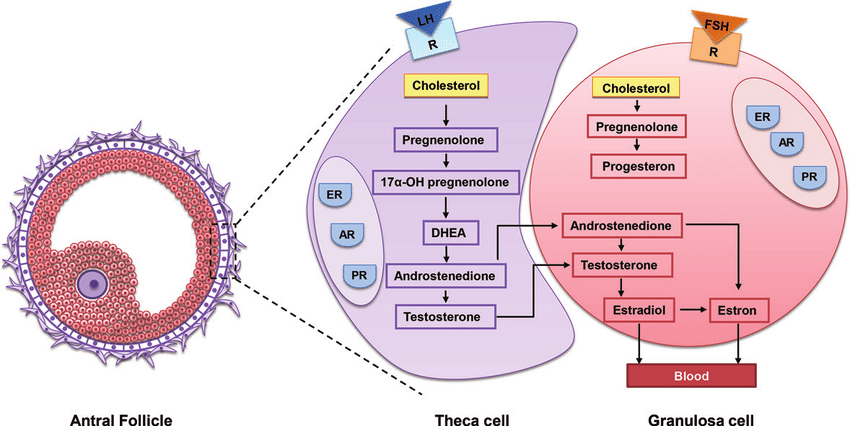Hormones and enzymes are two essential types of biomolecules that play critical roles in the body, especially during pregnancy. Although both are necessary for various biological processes, they differ in their functions, structures, and the roles they play in pregnancy. Understanding these distinctions can provide insight into how the body supports both the mother and fetus during pregnancy.
What Are Hormones?
Hormones are chemical messengers produced by the endocrine glands, such as the thyroid, adrenal glands, ovaries, and placenta during pregnancy. These messengers travel through the bloodstream to tissues and organs, where they initiate or regulate specific functions. Hormones are responsible for a range of physiological processes, including metabolism, mood regulation, growth, and reproductive functions.
During pregnancy, hormones like estrogen, progesterone, and human chorionic gonadotropin (hCG) play a vital role. For instance:
Progesterone helps maintain the uterine lining and prevent contractions, crucial for sustaining the early stages of pregnancy.
Estrogen supports the growth of the uterus and fetal development, as well as preparing the mother’s body for milk production.
hCG is produced shortly after conception, helping maintain progesterone levels and signaling the body to preserve the pregnancy.
These hormones work together to create a nurturing environment for fetal growth, maintaining the delicate balance necessary for a healthy pregnancy.
What Are Enzymes?
Enzymes, unlike hormones, are proteins that act as biological catalysts, meaning they speed up chemical reactions within the body without being consumed in the process. Enzymes are necessary for digestion, energy production, and even cell growth. Unlike hormones, enzymes do not travel throughout the body to send messages but remain localized in cells or specific organs to facilitate reactions.
During pregnancy, enzymes support various metabolic processes, ensuring that nutrients are efficiently broken down and utilized by both the mother and fetus. For example:
Digestive enzymes ensure that nutrients from food are broken down into absorbable forms, providing the mother and fetus with essential vitamins and minerals.
Placental enzymes help metabolize hormones and other compounds, keeping levels stable and preventing toxicity.
By aiding these processes, enzymes help maintain an optimal environment for fetal development and maternal health.
Differences Between Hormones and Enzymes
Function: Hormones serve as messengers, communicating instructions across the body, whereas enzymes act as catalysts to speed up specific chemical reactions without being consumed.
Location and Action: Hormones are produced in glands and circulate through the bloodstream to various organs. Enzymes, however, often remain within specific cells or organs to act directly on target molecules.
Role in Pregnancy: Hormones primarily focus on signaling and regulating physiological changes, such as maintaining pregnancy, supporting fetal growth, and preparing the body for childbirth. Enzymes, on the other hand, support metabolic reactions that ensure the efficient processing of nutrients, energy production, and waste removal, all of which are crucial for the developing fetus.
How Hormones and Enzymes Work Together in Pregnancy
While hormones regulate and signal the need for specific processes, enzymes execute these processes by facilitating the necessary chemical reactions. For example, when progesterone signals the need for increased blood flow to the uterus, enzymes catalyze reactions to expand blood vessels and increase blood supply. Similarly, digestive enzymes work in conjunction with hormonal changes that boost nutrient absorption, providing essential sustenance for the growing fetus.
Impact of Imbalances
An imbalance in either hormones or enzymes can significantly affect pregnancy. Low levels of progesterone, for instance, may lead to miscarriages or preterm labor, while enzyme deficiencies can lead to malabsorption of nutrients, affecting fetal development. Hormonal imbalances can also cause conditions such as gestational diabetes or preeclampsia, while enzyme deficiencies can impact maternal energy levels and the body’s ability to meet increased metabolic demands.
Conclusion
Hormones and enzymes are both vital to pregnancy, each serving a distinct yet interdependent role. Hormones act as regulators, directing the necessary physiological changes, while enzymes enable the chemical reactions that make these changes possible. Together, they create a supportive environment that facilitates both maternal health and fetal development. Understanding the balance between hormones and enzymes can offer valuable insights into prenatal care and the ways to support a healthy pregnancy.
